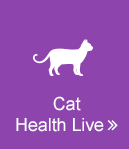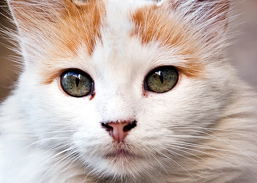The liver’s main functions are to filter blood from the GI tract before it goes into the rest of the bloodstream, produce bile to aid in fat digestion and to store glycogen as a source of energy. Because the liver plays a big role in fat metabolism, sudden weight loss can have a big impact on its function. If a cat stops eating because it is sick or if pet parents put their cats on too drastic of a diet, fat accumulates in the liver making the liver enlarged and greasy which inhibits liver function. This condition is called Hepatic Lipidosis and is unique to cats. If you notice a sudden decrease in appetite in your cat accompanied by drooling, you should take them to the veterinarian to make sure their liver is functioning properly. The vet can feel if the cat’s liver is enlarged and run bloodwork to make sure the liver is healthy. Fluid & nutritional support can often put the liver back into balance when treated early.
Cats can also experience liver disease for other reasons such as infection or as a side-effect of medications. Liver disease and liver failure can be recognized by decreased appetite, vomiting, diarrhea, lethargy and weight loss. Jaundice (yellowing of the skin and eyes) is a major tell-tale sign of liver problems, but is difficult to recognize on furry cats. Take a look at the area around your cat’s ears where the fur in thin to see their skin color. Bacterial infections can be treated by your vet with antibiotics and the liver can be supported with supplements like milk thistle extract and SAMe.
Studies
Hepatic progenitor cells in canine and feline medicine: potential for regenerative strategies.
Animal models of fulminant hepatic failure: a critical evaluation.


